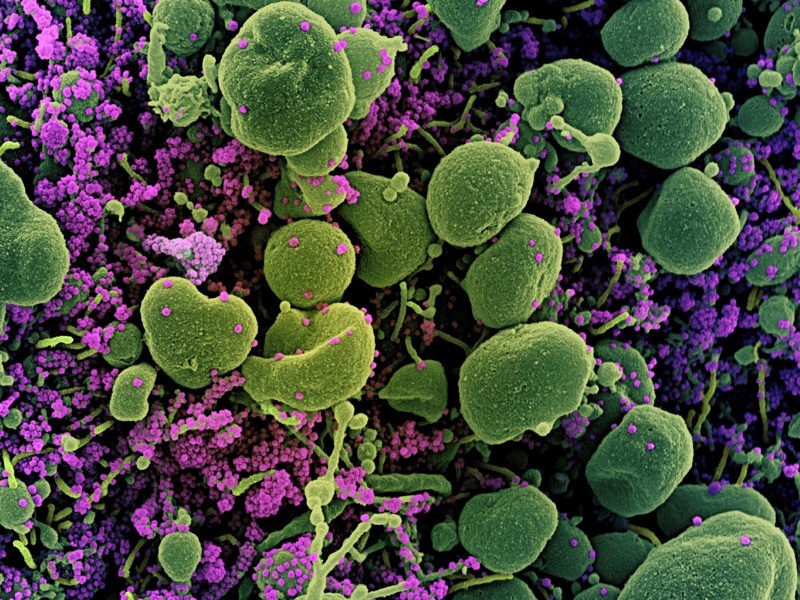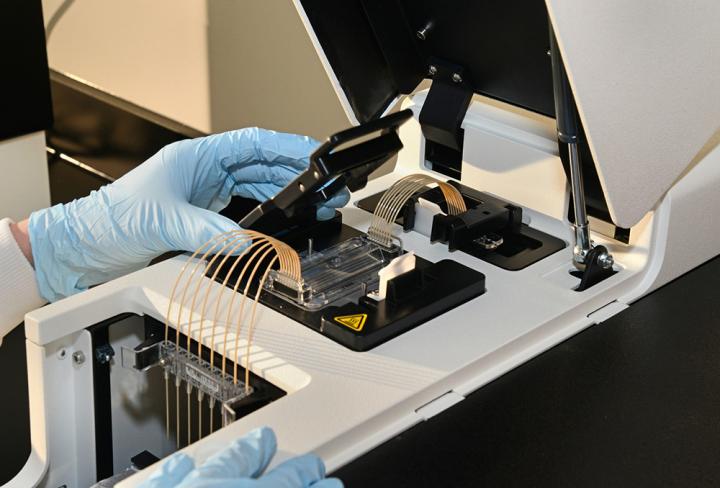COVID -- Finding Levers to Pull
 |
"We've known for many years that variation in susceptibility to infection is strongly genetic.""What we've been trying to do is use genetics to understand the complexity of the human immune system to find levers we can pull that will change the outcome for the patient.""Essentially we're using genetics to predict the effect of drugs that treat them in the system."Dr.Kenneth Baillie, chief investigator, Roslin Institute, University of Edinburgh"This study takes the morass of biology and shines a light on very specific places, and then says, actually, there is a treatment. It's not used for this, we didn't have a clue it would be useful.""In terms of a leap forward it's a quantum leap forward."Prof.Sir Mark Caulfield, chief scientist, Genomics England, director, NIHR Biomedical Research Centre, Barts, Queen Mary University, London"Identifying genes associated with severe COVID-19, including in young patients without known underlying health issues, will allow us to better target and accelerate research into new diagnostic and therapeutic approaches."Dr.Jonathan Pearce, COVID-19 response interim director, Medical Research Council
Given urgent public health research status to search out genes linked to the novel coronavirus, the tool being used by researchers from the University of Edinburgh; the GenOMICC (Genetics of Susceptibility and Mortality in Critical Care) study which was initiated in 2015 for the purpose of parsing genetic factors influencing outcomes in intensive care from diseases like SARS, influenza and sepsis. In the year 2020 it was extended to incorporate global health public enemy number one: SARS-CoV-2, the virus that causes COVID-19.
 |
| Scientists studied the DNA of 2,700 patients w/severe Covid-19 |
Which led to the discovery by researchers out of the University of Edinburgh of a startling nature; that there are five gene variants that in people hosting them tend to raise the risk of becoming seriously ill from the novel coronavirus. A monumental breakthrough, according to those who should know in the scientific community, capable of leading to life-saving therapies. A discovery which in fact, helps to explain why it is that some individuals are more susceptible to the disease than others.
The discovery may further explicate why it is that some entire families and ethnic groups as well, become affected disproportionately to the deleterious effects of the virus. The research team studied the DNA of 2,700 COVID-19 patients from 208 intensive care units in the United Kingdom, comparing the genetic data with samples from healthy volunteers in a bid to discover what might be different in the DNA of those people who had become seriously ill.
Key differences were located in five genes -- IF-NAR2, TYK2, OAS1, DPP9 and CCR2 -- carried individually by between six and 68 percent of the population. These are genes involved in two processes in the body -- antiviral immunity and lung inflammation -- which can be dialed up or down by drugs already in use for other medical purposes. Scientists have long been aware that genetics are largely involved in how long a person may live.
Once they succeeded in identifying the genes, the team was able to predict the effects of drugs on patients, since some genetic variants respond in similar ways to particular drugs. A reduction in the activity of the TYK2 gene for example, protects against COVID-19. JAK inhibitors, a class of anti-inflammatory drugs used currently in rheumatoid arthritis protocols, can dampen gene activity. Patients severely ill with COVID are likely to be helped with these anti-inflammatory drugs.
INFAR2 activity was found to be boosted, resulting in protection as well, since it mimics the effect of treatment with interferon, a special proteins released by cells of the immune system in its defence against viruses. To be effective, however, experts caution, patients might require treatment early in the disease onset. The findings were published in Nature, the research team stating that clinical trials should focus on drugs targeting these specific areas.
The team's follow-up study to narrow down susceptible targets even further is hoping for volunteers from ethnic minorities to come forward; the researchers planning its focus on studying whether the genes are linked to specific ethnic groups. People of South Asian descent are known to be at greater risk, since four of the gene variants are common within their groups.
 |
A study of some of the sickest COVID-19 patients, such as those placed on ventilators, has identified gene variants that put people at greater risk of severe disease. Fabio Teixeira/Anadolu Agency/Getty Images |
Labels: 5 Gene Variants, COVID-19, Ethnic Group Susceptibility, Research, University of Edinburgh

0 Comments:
Post a Comment
<< Home